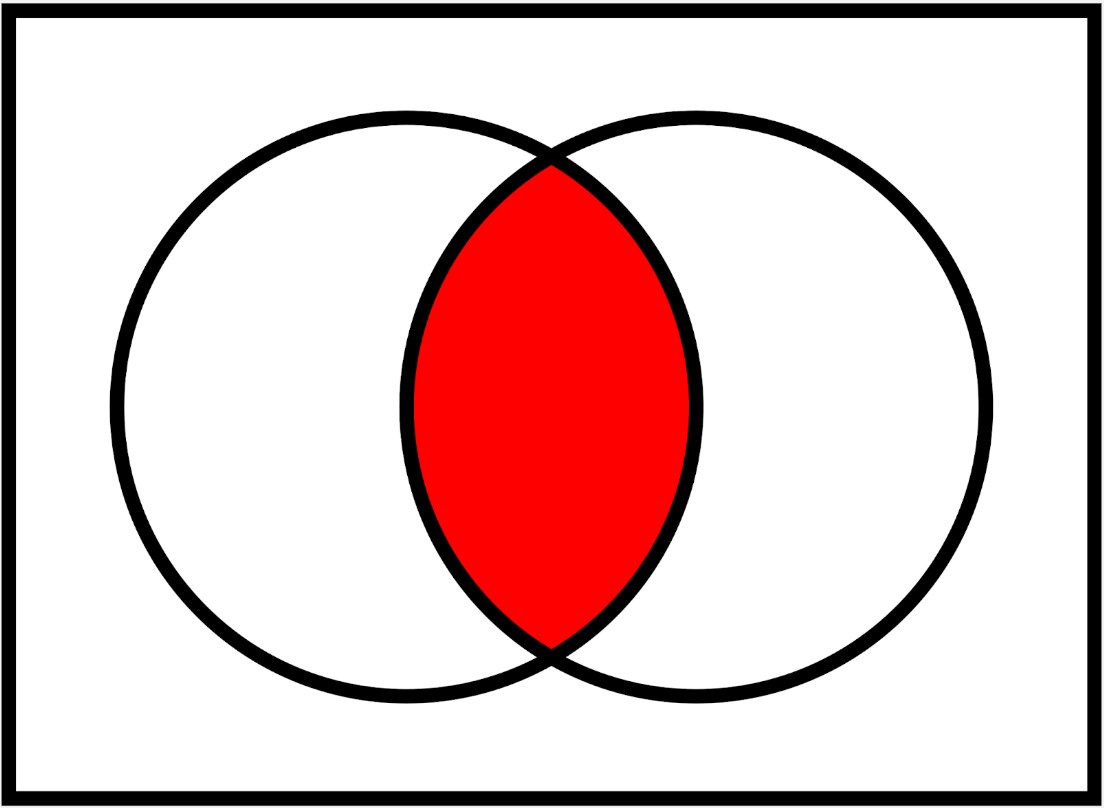{1, 2, 3, 4, 5}sets (class slides)
CSc 110 - Sets
Set methods
.add(value)adds an element to the set.discard(value)discards the specified value.union(set2)returns a set with the all elements in both sets.intersection(set2)returns a set with the all elements in common
union

union
intersection

intersection
Evaluate the code
Evaluate the code
presences = {"Anna", "Beatrice", "Claude"}
absences = {"Elvin", "Harley"}
absences.add("Becca")
presences.union(absences){'Anna', 'Beatrice', 'Becca', 'Claude', 'Elvin', 'Harley'}Write a function
- Its name is
common_values - It takes two sets are arguments
- It returns
Falseif the sets have no elements in common,Trueotherwise
Write a function – solution
Write a function
- Function name is
discard_elements - It takes two sets as argument:
set_1andset_2 - It mutates the first set (
set_1) removing all elements it has in common withset_2